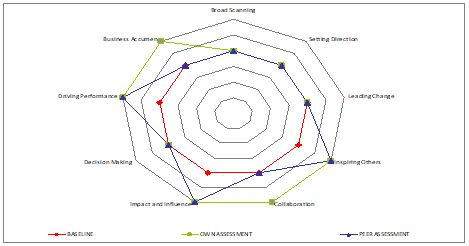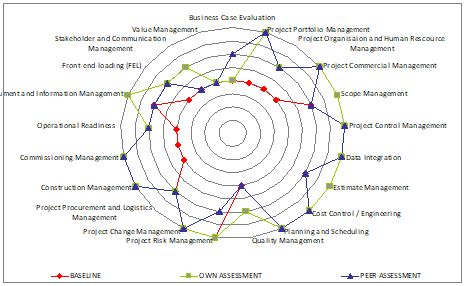Assistance with your Career – Coaching and Mentoring, Talent Development
PCiBS will provide assistance in managing leadership development, identifying the processes and methods for developing leaders, as well as improving leadership capabilities by drafting a strategy and a plan of action for each individual that wants to utilize our coaching and mentoring capabilities that are endorsed by the International Association of Coaching (IAC®).
Check IAC out here.
Developing leaders comprises of processes and methods that are followed by PCiBS of which assessment, challenges and support are used to define the elements that add up to individual experience that should be harnessed into leader development. To develop leaders also entails putting individuals on a development program, allocating a coach and mentor to them, and to round it off predetermined evaluation regime.
Definition Coaching
Coaching aims to improve performance by focusing on the present and does not dwell on the past or the future. Coaching is fundamentally helping the individual to improve and maximize their performance, by helping them to unlock their own potential and learn at the same time. When utilizing a coach your performance will increase much faster than trying to improve your performance on your own.
High-level Coaching differences
- The relationship for coaching has a set duration and has a time limit
- Coaching uses a structured method and meetings are scheduled regularly
- Coaching focuses on very specific competency development with issues pertaining to an individual
- PCiBS uses specific skills focused coaching and the coaches have direct experience of their client’s job description role
- Coaching focuses on the competency development of work and its respective issues
- A Coaching agenda focuses on the achievement of specific and immediate goals
- Coaching focuses on identified gaps for each individual and issues have been identified
Definition Mentoring
Mentoring focuses on the future and develops skills for personal and career development. Mentoring guides you to learn and develop faster than on your own.
High-level Mentoring differences
- A mentoring relationship can last a very long time
- Mentorship can be informal, and meetings can be scheduled when mentee needs guidance, support or advice
- Mentorship is a long-term relationship with a view on the person
- A mentor is normally more senior and is more qualified (via competencies) than the mentee
- Mentoring focus is on personal development and the career expansion
- The agenda is set by the mentee and mentor assists in developing them for future roles
- Mentorship revolves more around developing a professional career for the mentee
The Coaching program will be run in pre-arranged sessions. Work or assignments will be allocated depending on the outcomes of the sessions. Any questions please email us.
Add COACHING – and your question in the SUBJECT LINE of your email and add your name (and student number if you have one) and contact information to your email, including your telephone number.
The Mentoring program will be run in pre-arranged sessions. Work or assignments will be allocated depending on the outcomes of the sessions. Any questions please email us.
Add MENTORING – and your question in the SUBJECT LINE of your email and add your name (and student number if you have one) and contact information to your email, including your telephone number.
You will be contacted within 24 hours (72 hours, if requests come over week-end / holidays).
PCiBS provide an online Talent Analytics and Competency Design kit for each student to complete to ensure proper study guide for each student. A online Talent Analytics and Competency Design kit can be completed, and a report will be issued. The report will identify gaps in required competencies for the selected study area and focus on issues to develop specific student competencies.
We assist you in climbing the talent ladder in your industry and defining what success looks like. We assist in determining success factors and inherent requirements for roles and jobs within organizations. We help you review and align competencies to each student’s strategic goal, plus we make them measurable with our credible, scientifically defensible competency frameworks for our specific study areas.
WHAT OUR STUDENTS SAY:
“PCiBS’ professional assistance with competency design was excellent during the screening process of undergraduates and graduates for the identified or selected study Programme of students, for Coaching and or Mentoring. PCiBS always provides practical solutions to challenges in Talent Management.”
PCiBS has developed its inhouse Individual Development Tool (IDP), which will assist each student to monitor their gaps and planned development. Our Individual Development Tool (IDP) has particular job descriptions included that help the students to control their talent development within their discipline and their succession plan. A succession plan can also be developed with students to assist them with their talent and leadership development.
PCiBS treats competency as part of its core learnings and enhancements in leadership development. The initial competency development is formal education, but leadership competency development follows a contemporary approach during the coaching and mentoring processes that PCiBS follows.
PCiBS competencies are checked by getting the students to do a self-assessment, followed by a peer assessment on their IDP tool. Once these competencies are defined, it assists in establishing a career path of an individual’s development path. Talent can be assessed through means such as productivity measures, employee surveys, and direct observation. PCiBS employs two types of competencies, namely, behavioral and technical skills of an identified successor of a specific discipline job description.

Figure 1 Behavioural Competency Spider Diagram (Source: PCiBS 2014, generated)
This individual’s assessment exceeds the behavioral competencies defined for this specific position. Collaboration and business acumen have been marked down by a peer assessment. The technical skills of an identified successor of a leadership position in BFI.

Figure 2 Technical Competency Spider Diagram (Source: PCiBS 2014, generated)
This individual’s assessment exceeds all the technical competencies defined for this specific position and the next position. For PCiBS, this means that the candidate is ready now to step into a leadership role.
Student’s abilities and competencies are measured and monitored during their studies and form part of their Coaching and Mentoring process.
